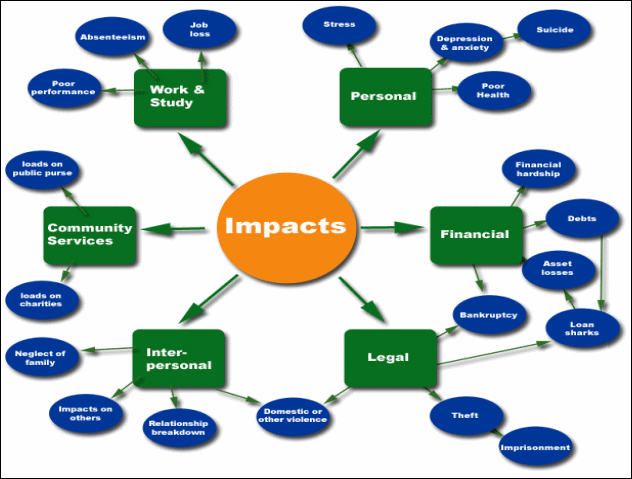Problem gambling is a serious issue affecting individuals and their families across the UK. In this blog, we will explore the signs of problem gambling, its effects on various aspects of life, and strategies to overcome it. It’s crucial to recognize the problem early on and seek help to prevent further negative consequences.

Recognizing the Signs
Problem gambling is more than just occasional betting or lottery play. It becomes a concern when it disrupts daily life and damages relationships. If you’re unsure whether you have a gambling problem, answer these ten questions honestly. Depending on the number of ‘yes’ responses, you can gauge the severity of the issue and determine if professional help is needed.
The Effects of Problem Gambling

While gambling may not exhibit physical symptoms, its negative impact can be widespread. Issues like reduced quality of life, social isolation, physical health problems, financial difficulties, relationship conflicts, and even criminal activities can arise. Even if these problems haven’t surfaced yet, it’s crucial to be mindful of the potential consequences of unchecked gambling habits.
How Problem Gambling Develops
Certain factors increase the likelihood of developing a gambling problem. Men, individuals working in gambling-related industries, teenagers, and young adults are more susceptible. Specific types of gambling, such as mobile or internet gambling, video poker, and the stock market, are more likely to lead to addiction. Recognizing these risk factors is essential for prevention.
Also Read Gender Apartheid and Mental Health Under the Taliban
Factors Contributing to Problem Gambling
Several factors may make a person more vulnerable to developing a gambling problem, including mental health conditions, substance abuse, incarceration, a family history of gambling addiction, early exposure to gambling, and an inability to control gambling impulses. Being aware of these factors can help individuals take proactive measures to address potential issues.

Self-Help Strategies
If you believe your gambling has become problematic, there are practical steps you can take to regain control:
- Limit Your Spending: Set strict weekly gambling budgets, leave cards at home, and use tools like GAMSTOP to block online access.
- Reduce Gambling Time: Establish specific days for gambling, set alarms to limit session durations, and resist impulsive bets.
- Change Your Perspective: Acknowledge that gambling is not a money-making strategy but rather a form of entertainment. Be prepared to lose, and never use savings for gambling.
- Engage in Other Activities: Spend time with loved ones, join non-gambling social groups, and pursue hobbies to fill your time constructively.
Conclusion
Problem gambling is a pervasive issue that requires attention and proactive measures. By recognizing the signs, understanding the risk factors, and implementing self-help strategies, individuals can take control of their gambling habits and prevent the negative consequences that can impact their lives and the lives of those around them. Seeking professional help is crucial, and there is support available for those ready to take the first step towards recovery.

Excellent write-up